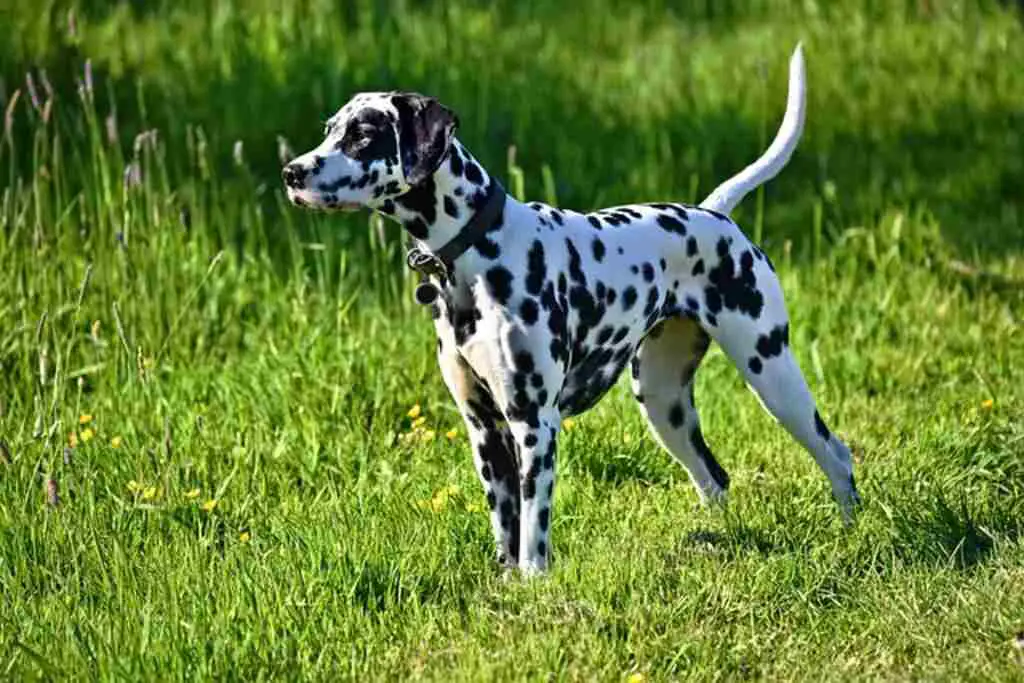If you’re a dog lover looking to adopt a Dalmatian, then it’s likely you’re wondering, are dalmatians good with small dogs? It’s understandable to want to make sure your four-legged best friend would be happy living with you in a multi-dog home.
So in this blog post, I’m going to help break down some of the key points about how Dalmatians do with small dogs and whether or not they are a good fit for your family.
We’ll discuss their temperament when around small dogs, what size small dog breed is ideal for a Dalmatian, and more. With this information, you’ll be better equipped to decide whether a Dalmatian is the right choice for your home.
- Are Dalmatians good with small dogs?
- Are Dalmatians good with other small dogs?
- Are Dalmatians aggressive to small dogs?
- Are Dalmatians good for first time owners?
- Are Dalmatians good guard dogs?
- Are Dalmatians dangerous?
- Dalmatians temperament
- Are Dalmatians smart?
- Can a Dalmatian live with a small dog?
- Why would a Dalmatian attack a small dog?
- What small dogs are good with Dalmatians?
- Do Dalmatians and French bulldogs get along?
- Do Dalmatians and Poodles get along?
- Do Dalmatians and Chihuahuas get along?
- Do Dalmatians and Dachshunds get along?
- Do Dalmatians and Cocker Spaniels get along?
- Do Dalmatians and Pugs get along?
- Do Dalmatians and Yorkies get along?
- Do Dalmatians and Shih-Tzus get along?
- Do Dalmatians and Corgis get along?
- Do Dalmatians and Beagles get along?
- Do Dalmatians and Jack Russell Terriers get along?
- How do you introduce a Dalmatian to a small dog?
Are Dalmatians good with small dogs?
When it comes to getting along with other canines, Dalmatians have a reputation for being great companions for smaller dogs. This is due to their naturally gentle and tolerant nature. They are very patient and usually get along well with other pets in the household.
In addition, they have a strong pack instinct, which helps them to form close bonds with other canines. As they age, they become even more relaxed around the company of other animals.
Are Dalmatians good with other small dogs?
Dalmatians are known for being loyal, friendly and good-natured dogs. When it comes to their behavior around small dogs, Dalmatians can be an ideal choice. They have a natural inclination to be patient and gentle with all animals, including smaller ones.
This makes them great companions for all size pups. Dalmatians also have an innate protective instinct when it comes to protecting the family pack or any other smaller animal in its environment. This means that they are more likely than some breeds to look out for other canines in their vicinity.
Additionally, Dalmatians tend to socialize well with most animals and people, making them a great fit if you’re looking for a canine companion who will get on well with your little pup as well as others. If you’re looking for a big dog who will get along great with small ones, the Dalmatian is definitely worth considering!
Are Dalmatians aggressive to small dogs?
When it comes to Dalmatians and their interactions with small dogs, it’s important to be aware that they can be aggressive. This is due in part to their high energy levels and natural herding instinct, which can lead them to chase or even nip at smaller animals.
Additionally, certain territorial behaviors can come out when a Dalmatian feels like its space or family has been encroached upon by another dog. It’s important for owners of both large and small dogs to properly socialize their pets from an early age so that they are comfortable around each other.
With proper training and positive reinforcement, however, Dalmatians can learn how to interact safely with small dogs instead of displaying aggression towards them.
Are Dalmatians good for first time owners?
Dalmatians are an energetic breed of dog that require plenty of daily exercise and socialization. They make great family pets, but they may not be the best choice for first time owners due to their high energy levels and need for regular grooming.
They can also be stubborn at times, so consistency in training is important. Dalmatians generally get along well with other animals and kids, but they need an experienced owner who can give them enough attention and exercise.
If given proper leadership, a Dalmatian can be a loyal and loving pet; however, they don’t always respond well to punishment-based training methods. Overall, Dalmatians can make wonderful pets as long as their owners have the knowledge and patience required to meet their needs.
Are Dalmatians good guard dogs?
Dalmatians are known for their high energy and loyal personalities, making them an ideal choice to be a good guard dog. Dalmatians have an energetic temperament, giving them the ability to act quickly in order to protect their home and family.
They also have a strong sense of loyalty that causes them to stay close to their owners and alert them when something is wrong. This makes them great watchdogs as they are always on the lookout for potential threats.
In addition, Dalmatians have a large bark and intimidating presence, which can often scare away intruders. All these traits combine to make Dalmatians excellent guard dogs who will do whatever it takes to keep their family safe.
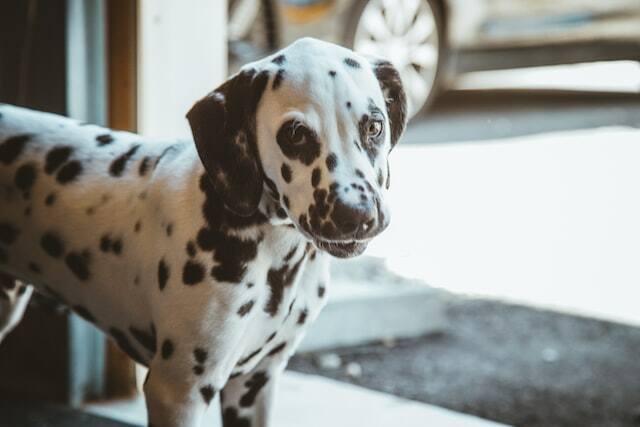
Are Dalmatians dangerous?
Dalmatians are a breed of large, energetic dogs that have been popularized by literature and film. Despite their playful appearance, it is important to remember that Dalmatians can be dangerous if not properly trained and socialized.
They are very loyal and protective of their people, which can lead to aggression towards strangers or other animals. If they are not adequately exercised, they may become destructive or exhibit other negative behaviors.
Proper training and socialization from an early age is essential for any breed of dog, especially one as active and powerful as the Dalmatian. With proper care and attention, these majestic dogs can be loving companions with a heart of gold!
Dalmatians temperament
Dalmatians are known for their loyal, active and playful personalities. They have a strong sense of loyalty to their owners and will be very protective of them. Dalmatians also possess a high level of intelligence that allows them to learn quickly and be easily trained.
With proper socialization, they make great family pets, although they can sometimes be stubborn and independent-minded. This breed is naturally active, so they need plenty of physical activity and mental stimulation in order to stay healthy, both mentally and physically.
They do best when given appropriate exercise opportunities, such as long walks or runs with their owners. Dalmatians tend to bond closely with one or two people in the household, but are friendly to other humans and animals alike.
Are Dalmatians smart?
Dalmatians are quick-witted and intelligent dogs. These canines were originally bred to be working dogs, which means they have the inherent ability to think independently and make decisions. Not only this, but their alert nature makes them great watchdogs as well!
When it comes to obedience training, Dalmatians learn quickly and respond well. They understand the commands given to them and follow them without hesitation due to their intelligent brains. Even when it comes to other activities such as agility training or play time with their owners, these smart pups pick up on instructions very quickly and are eager to please.
Their loyalty and trainability make them an ideal companion for any loving pet parent! All in all, Dalmatians are smart pooches that respond exceptionally well to learning new things—making them a breed worth considering if you’re looking for an obedient dog that loves spending quality time with its family.
Can a Dalmatian live with a small dog?
It is certainly possible for a Dalmatian to live with a small dog. While the large size of the Dalmatian can be intimidating for smaller breeds, the energy and enthusiasm of these dogs can be balanced with proper socialization and training. With patience and care, owners can create an environment that works for both animals.
It is important to introduce them to each other gradually in neutral territory and monitor their behavior closely as they get used to one another. Dalmatians are known to be very loyal and loving companions so making sure they understand how to interact politely with their new housemates is key.
Additionally, providing plenty of exercise opportunities will help keep all pups happy and healthy while living together under the same roof. With some extra effort, it’s possible for a Dalmatian and a small dog to become part of a harmonious pack!
Why would a Dalmatian attack a small dog?
Dalmatians are known for being an active and energetic breed, but they can also be highly territorial. If a small dog were to enter their space, or even just come too close, it is possible that the Dalmatian would become aggressive and attack. This could be out of fear, or because they feel protective of the area and its inhabitants.
In some cases, this type of aggression may have been a learned behavior due to a history of negative experiences with small dogs in the past. It is important for owners to recognize these warning signs in order to prevent any potential attacks from occurring.
Taking extra care when introducing other animals into a Dalmatian’s environment and providing plenty of socialization opportunities can help ensure that all interactions remain safe and positive.
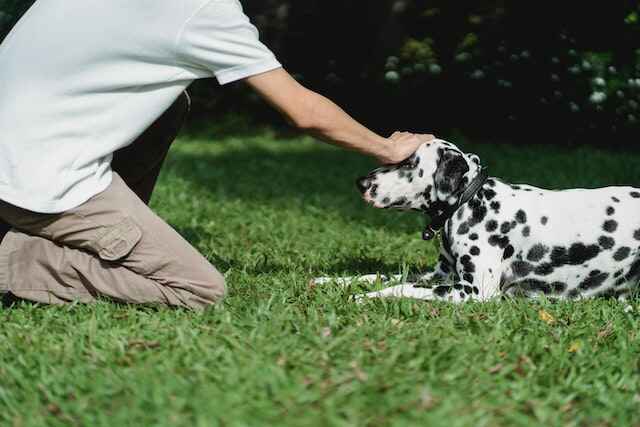
What small dogs are good with Dalmatians?
When thinking about which small dog breeds might be good with a Dalmatian, it is important to consider the personality differences between breeds. Generally speaking, when selecting a companion for your Dalmatian, look for dogs that are outgoing, confident and friendly. Breeds like Pugs, Chihuahuas, Boston Terriers, Beagles and French Bulldogs can all get along great with a Dalmatian.
These breeds often have playful personalities and lots of energy that meshes well with the temperament of a Dalmatian. The two breeds will likely enjoy chasing each other around for hours on end! Additionally, these smaller dog breeds need less space than larger ones, so they are ideal if you’re living in an apartment or have limited yard space.
No matter which breed you choose to add to your home with your Dalmatian, keep in mind that all dogs need plenty of attention and socialization with people as well as other animals. With proper love and care from their owners, these small pups can become best buds with your furry friend!
Do Dalmatians and French bulldogs get along?
It is possible for Dalmatians and French bulldogs to get along as long as proper introductions are made and both dogs are given sufficient training, socialization, and exercise. Like any two breeds, there may be some underlying issues that can cause conflict between the two.
However, with the right guidance from a pet parent, these differences can usually be worked out. For a successful relationship between the two breeds, it’s important to ensure they both have enough space and opportunity to engage in their own activities such as walks or playtime.
This can help them become more accustomed to each other’s presence and learn boundaries. Additionally, introducing plenty of positive reinforcement when they interact will foster trust and respect between them. With patience, understanding, and commitment from their pet parents, Dalmatians and French bulldogs can form a strong bond!
Do Dalmatians and Poodles get along?
Dalmatians and Poodles are both popular breeds of dogs that have been around for centuries. Even though they may appear very different, they can be great companions! Dalmatians are intelligent, loyal and energetic dogs, while poodles are also known for their smarts, loyalty and active nature.
Both breeds thrive on plenty of physical and mental stimulation from their owners in order to stay happy and healthy. When it comes to getting along with each other, it largely depends on how the two personalities mesh together. Generally speaking, Dalmatians get along well with most other dogs if there is enough space available for them to play and run around.
On the other hand, Poodles tend to require more attention from their owners than other breeds do and can become territorial over toys or food if not socialized properly. However, when both breeds are treated fairly and given plenty of love and exercise, they can get along quite amicably!
Do Dalmatians and Chihuahuas get along?
When it comes to the question of whether Dalmatians and Chihuahuas get along, it really depends on the individual personalities of each dog. In general, these two breeds tend to have different temperaments, with Chihuahuas being more outgoing and feisty while Dalmatians are usually calmer and more laid back.
Still, there are always exceptions where these two breeds can form a strong bond if both dogs have compatible personalities and if they’ve been around each other for a while.
The key is introducing them early in life and socializing them together so that they can become comfortable around one another. With proper training and patience, Dalmatians and Chihuahuas can be good friends.
Do Dalmatians and Dachshunds get along?
When it comes to the question of whether Dalmatians and Dachshunds get along, the answer is largely dependent on the individual personalities of each dog. Generally speaking, these two breeds can form a friendly relationship if they are both well socialized and exposed to one another in a positive environment from an early age.
However, due to their differing temperaments, it is possible for them to exhibit aggression towards one another if not properly managed. It’s important that owners provide ample playtime for the two dogs separately, as this will help reduce tension between them.
Furthermore, owners should always supervise interactions between their Dalmatian and Dachshund so that any negative behavior can be addressed immediately. With proper training and patience, these two breeds can learn to happily coexist with one another!
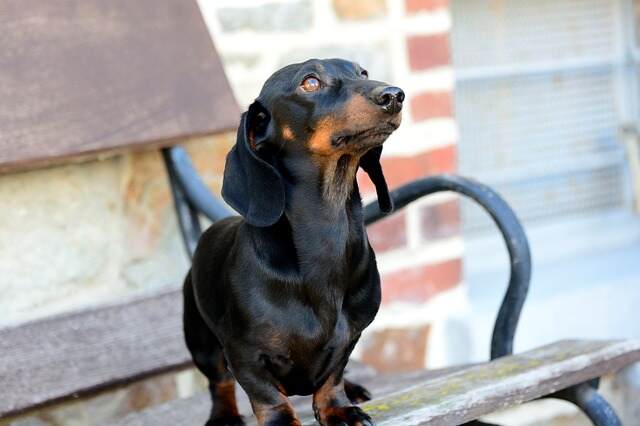
Do Dalmatians and Cocker Spaniels get along?
Dalmatians and Cocker Spaniels can generally get along very well. Both breeds tend to be intelligent, friendly, and eager to please. When properly introduced, they are likely to bond over shared activities like playtime and walks together. It’s important to ensure that both dogs have been adequately socialized as young pups so they feel comfortable around other canines.
They should also have separate toys and spaces in the home that allow them to rest comfortably without feeling threatened by one another. With appropriate care, structure, and attention from their humans, these two beloved breeds can get along famously!
Do Dalmatians and Pugs get along?
Dalmatians and Pugs can be good friends if given the right introduction. Both breeds are loyal, playful, and affectionate, so they often enjoy being in each other’s company. The key to success is introducing them slowly and making sure they feel safe.
Start by having the two dogs meet while on leash in an open area where both have plenty of space to get away from one another if needed. Allow them to sniff each other then give treats for positive interactions.
It is important for both pups to have equally positive experiences during the first few meetings as that will ensure a successful relationship going forward. With patience and positive reinforcement, Dalmatians and Pugs can become great pals!
Do Dalmatians and Yorkies get along?
The answer to whether Dalmatians and Yorkies get along is not an easy one. Generally, they can coexist quite peacefully if properly introduced. However, due to their temperaments and sizes, there are potential issues that should be taken into account.
For starters, Yorkies tend to possess a stronger prey drive than most breeds, which means they may be more inclined to chase or bark at a larger dog like a Dalmatian. Additionally, Dalmatians are known for having somewhat of an independent streak and might not appreciate the affection-seeking nature of the Yorkshire Terrier.
With patience and proper training, though, these two breeds can learn to live in harmony with one another. If you’re considering bringing both into your home, it’s best to consult a professional trainer or behaviorist first – better safe than sorry!
Do Dalmatians and Shih-Tzus get along?
The answer to whether Dalmatians and Shih-Tzu dogs get along depends largely on their individual temperaments. Generally, these two breeds of dog are both friendly and playful, so it is likely that they will at least tolerate each other’s presence in a home setting. However, the key is to properly introduce them to one another slowly and carefully so that each dog has the chance to become familiar with the other one’s scent and personality.
If socialized correctly from a young age, these two breeds can make great companions for each other as well as for their human family members. It’s important to remember that even if they are not best friends, it doesn’t mean they won’t be able to live in harmony with one another.
Do Dalmatians and Corgis get along?
The answer to the question of whether Dalmatians and Corgis get along is a resounding yes. Both breeds are very social and friendly, so they tend to get along well with other dogs.
Dalmatians have an easy-going and playful demeanor which makes them excellent companions for more boisterous dog breeds like Corgis. They are patient and loyal, so they don’t mind when their four-legged friends pester them or steal attention away from them.
Both breeds need daily exercise, but Corgis are known for being energetic and sometimes too rough when playing with larger breed dogs like Dalmatians. However, with proper training and supervision, these two breeds can coexist in harmony!
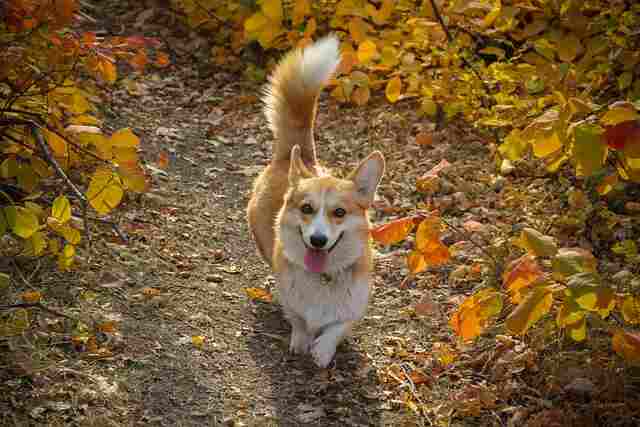
Do Dalmatians and Beagles get along?
The age old question of whether Dalmatians and Beagles can get along remains a popular one to this day. The answer, however, is largely dependent on the individual personalities of each dog. While some may get along great, others may not be so keen on interacting with each other.
In general though, it’s best to introduce them slowly and in controlled environments when possible. They should be given plenty of space and allowed to interact at their own pace.
As long as they are properly supervised, these two breeds can usually live harmoniously together—although early socialization is key for both breeds. With proper care and attention, it’s likely that a Dalmatian and Beagle could make very good friends indeed!
Do Dalmatians and Jack Russell Terriers get along?
Dalmatians and Jack Russell Terriers can get along if properly socialized. Both breeds are known for their intelligence and energy, so it’s important to establish a dominate-submissive relationship early on.
When two dogs of the same breed are living together, either one can become bossy toward the other and cause problems. If each dog is given proper playtime, exercise, and training, however, they may learn to coexist peacefully.
It’s also beneficial for them to meet often with other people and animals that aren’t their housemates in order to stay well-socialized. With patience and dedication from their owners, Dalmatians and Jack Russell Terriers have the potential to get along quite well!
How do you introduce a Dalmatian to a small dog?
When introducing a Dalmatian to a small dog, it is important to take your time and be patient. Start by having the Dalmatian in a separate room from the smaller dog. Keep the dogs separated for at least 30 minutes so that they can get used to each other’s scent.
After this, try doing short introductions with both dogs on a leash and an appropriate amount of distance between them. Be sure to reward both dogs when they interact calmly with one another.
If either dog shows signs of aggression or discomfort, separate them immediately and try again later after they have both calmed down. By taking these steps, you can ensure that you introduce your two furry friends in the best way possible!
Related Post: Are Bullmastiffs Good With Small Dogs? Can It Work?

